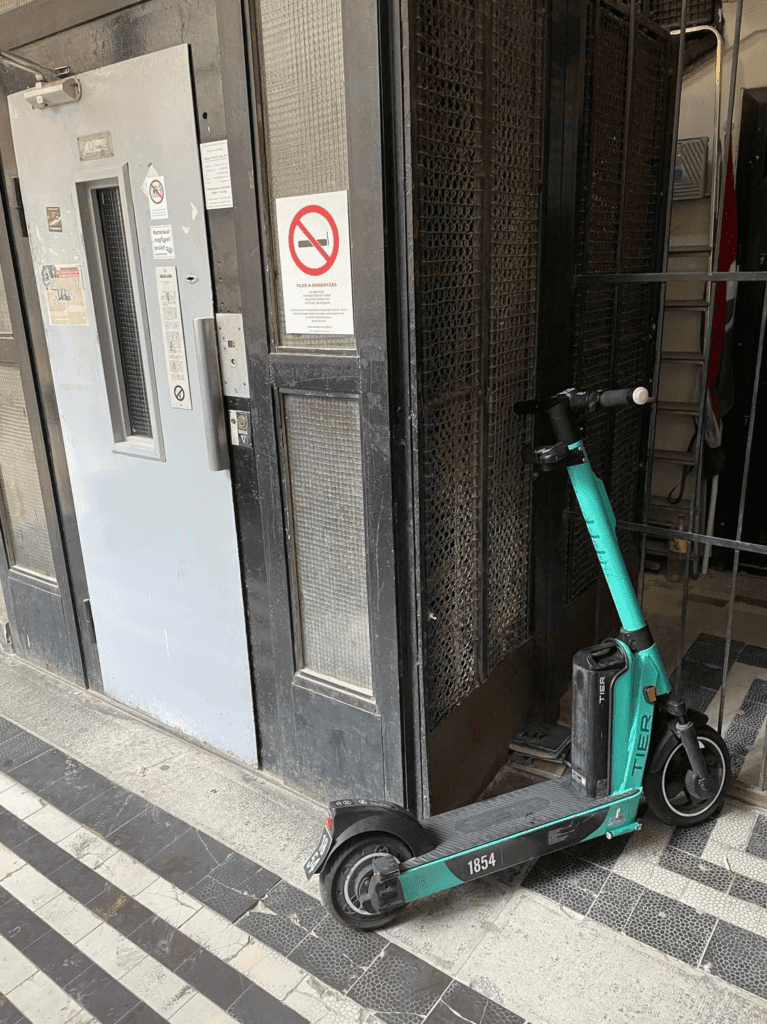Almost 90 per cent of voters in a referendum held in Paris over the weekend voted in favour of banning the use of rental electric scooters, the city’s mayor’s office announced. Of the 1.3 million eligible voters, only 103,000 went to the polls on Saturday and Sunday, representing a turnout of 7.46 percent in the first-ever ‘citizen referendum’ in Paris.
Mayor Anne Hidalgo committed herself before the vote to ‘respect the result of the vote, whatever it may be.’ The Parisian leader campaigned in favour of the ban. Service providers indicated that there would be ‘no direct impact’ on the 400,000 people who use rental electric scooters every month as a result of the referendum’s outcome, since they believe not enough people participated. Electric scooters appeared on French streets four years ago, with about 2 million people using their own scooters and hundreds of thousands using rental scooters to travel in major cities. There are about 15,000 such scooters available in Paris, operated by three service providers (Lime, Tier, and Dott). Their contract will expire on 31 August, so from September, Paris may be the first European capital to completely ban rental electric scooters.
French television regularly reports accidents between pedestrians and often speeding scooter riders, and in Paris, rental scooters are a constant problem for the municipality, as people leave them at random places, without any unified regulations as to where to deposit them after use. Last Wednesday, the French government raised the minimum age for electric scooter use from 12 to 14, similar to motorcycles, and made it mandatory to equip electric scooters with brake lights and turn signals. Since 2019, only one person can ride an electric scooter, and it is forbidden to ride or park on sidewalks. Violators can be fined 135 euros by the police, up from the previous 35 euros. The government has not yet made wearing helmets mandatory, but the Ministry of Transport says the issue is on the agenda.
Budapest Makes Changes As Well
Budapest and other major cities in Hungary have been having issues with e-scooters for years as well. From them being left on the sidewalk, their riders hitting pedestrians, or these riders just carelessly rolling into traffic. Many have caused serious incidents in the pasts, some even with fatal outcomes.
According to Máriusz Révész, the State Secretary responsible for Active Hungary, the KRESZ (Hungarian road traffic regulations) will soon be modified, and the legal status of electric scooters will be clarified. The completed proposal is currently with the Ministry of Construction and Transportation, and the final decision will be made by Minister János Lázár.
According to the proposal, electric scooters with a maximum speed of up to 25 km/h will be classified as bicycles, while those capable of higher speeds will be classified as motorised bicycles. ‘If we were to reclassify all electric scooters as motorised bicycles, the scooter sharing companies would go bankrupt. The use of a helmet is mandatory when riding a motorised bicycle, but none of the scooter riders wear this protective equipment. Therefore, for those scooters where the motor is factory-limited to 25 km/h, there is a uniform regulation in the European Union for bicycles,’ Máriusz Révész explained, who emphasised that Hungary is following the example of other EU member states.
The European Council for Transport Safety proposes even stricter, EU-wide regulation, which would limit the speed to 20 km/h, require mandatory helmet use, and only allow electric scooters to be used by those over 16 years of age. Máriusz Révész said that it would be useful to introduce a basic traffic exam in primary schools, which children should take before the age of 12.
The Outrage In The Capital
In the past, e-scooters have been a cause for outrage in Budapest. As they are still unregulated, anyone without prior knowledge can take them into traffic. Because they are unregulated, it is not even clear whether they can be ridden on public roads or sidewalks.
Another issue with them is the lack of drop-off zones, or docking stations. While some companies have installed them in Budapest, there are still not enough and most users are not accustomed to it, meaning that even if there is a drop-off zone nearby, they just leave the scooters wherever they stop using them. This has been one of the biggest causes behind the loathing of e-scooters that seems to be spreading among the citizens of Budapest.

In some districts in the city, one cannot simply walk on the sidewalks without bumping into a scooter that is lying in the middle of their path. Because they are carelessly left around, some have taken it upon themselves to ‘punish’ riders and the company. There have been cases where people simply threw scooters off a bridge into the Danube. While walking around the city, it is not hard to spot scooters shoved in trash bins, simply knocked over, or some even more creative ways of protesting at them–I once saw one stuck in a tree.
Conclusion
The Paris ban could be a step in the right direction for Budapest and other European cities as well. While it is true that e-mobility is important in these cities, if scooters are not regulated in any way, they become agents of chaos. Currently it is unlikely that Budapest will make such a drastic change as Paris did, especially if the KRESZ starts to include these ‘vehicles’. However, some lawmaker who falls over next time they are out on a walk because of a scooter lying in the middle of the sidewalk might escalate the situation and look to Paris as an example.








